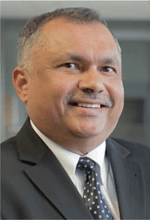Application of computerised radiography in lieu of film radiography to streamline on-site pipe weld quality inspection process
Mangala Fernando A C and Hamid Fard BA McConnell Dowell (Aust) Pty Ltd, Level 3, 109 Burwood Road, Hawthorn, Vic. 3122, Australia.
B Bureau Veritas Pty Ltd, 7 Palmer Place, Murarrie, Qld 4172, Australia.
C Corresponding author. Email: mangala.fernando@mcdgroup.com
The APPEA Journal 59(2) 785-788 https://doi.org/10.1071/AJ18102
Accepted: 1 March 2019 Published: 17 June 2019
Abstract
Conventional film radiography has long been the dominant method of non-destructive testing in the Australian pipeline industry. Although proven, the process has disadvantages, including environmental issues with chemical processing and film disposal, significant archival space requirements, film deterioration, and difficulty in traceability and safe sharing with others. In contrast, computerised radiography (CR), using a phosphorus-laden reusable imaging plate and X-ray radiation to generate a latent digitally scannable image, is a clean, compact and efficient process. Although CR has been used on other applications, such as profile radiography for more than a decade, the process has not been considered advanced enough for weld testing until now. After a comprehensive qualification/validation process, CR was successfully used on 481 km of the 622-km-long Northern Gas Pipeline (NGP) Project by McConnell Dowell in the Northern Territory. Proven on approximately 26 000 welds, this thinking has changed for good.
Keywords: gamma ray, X-ray.

Mangala Fernando commenced his career at the Colombo Gas Co., Sri Lanka, as a Town Gas Engineer before joining Shell Group of Companies as a Mechanical Engineer (Brunei Shell Sdn Bhd, 1990–1994, and Petroleum Development Oman, 1994–1997). He migrated to New Zealand in early 1997 and worked in a pipeline construction company until he joined McConnell Dowell in 2002. Mangala is currently the Australia Quality Manager in McConnell Dowell and is responsible for the implementation and maintenance of the quality management systems across all McConnell Dowell operations in Australia. He plays an important role in driving a quality culture and ensuring continuous improvement for the project teams in which he works. |

Hamid Fard started his career in non-destructive testing in 2001, after finishing his MSc in Materials and Metallurgy Engineering at the University of Tehran. His first job as a NDT technician was on an offshore platform construction project in Persian Gulf. He then persuaded his career in the pipeline industry as ‘Line Pipe Inspector’ working for an Italian Pipeliner Eni-Agip. He then moved onto compressor station projects and worked as a quality inspector in East Europe and China for 7 years. To further his career, he moved to Australia in 2012, where he started working for Saipem as the NDT supervisor on the GLNG Pipeline project. On the completion of the project, he joined Bureau Veritas Australia as an NDT Level 3 consultant specialising in AUT, Phased Array, ToFD, ACFM and computerised and digital radiography. Hamid is currently National Technical Manager of Bureau Veritas Australia, looking after advance NDT technologies in the Pacific Region. |


